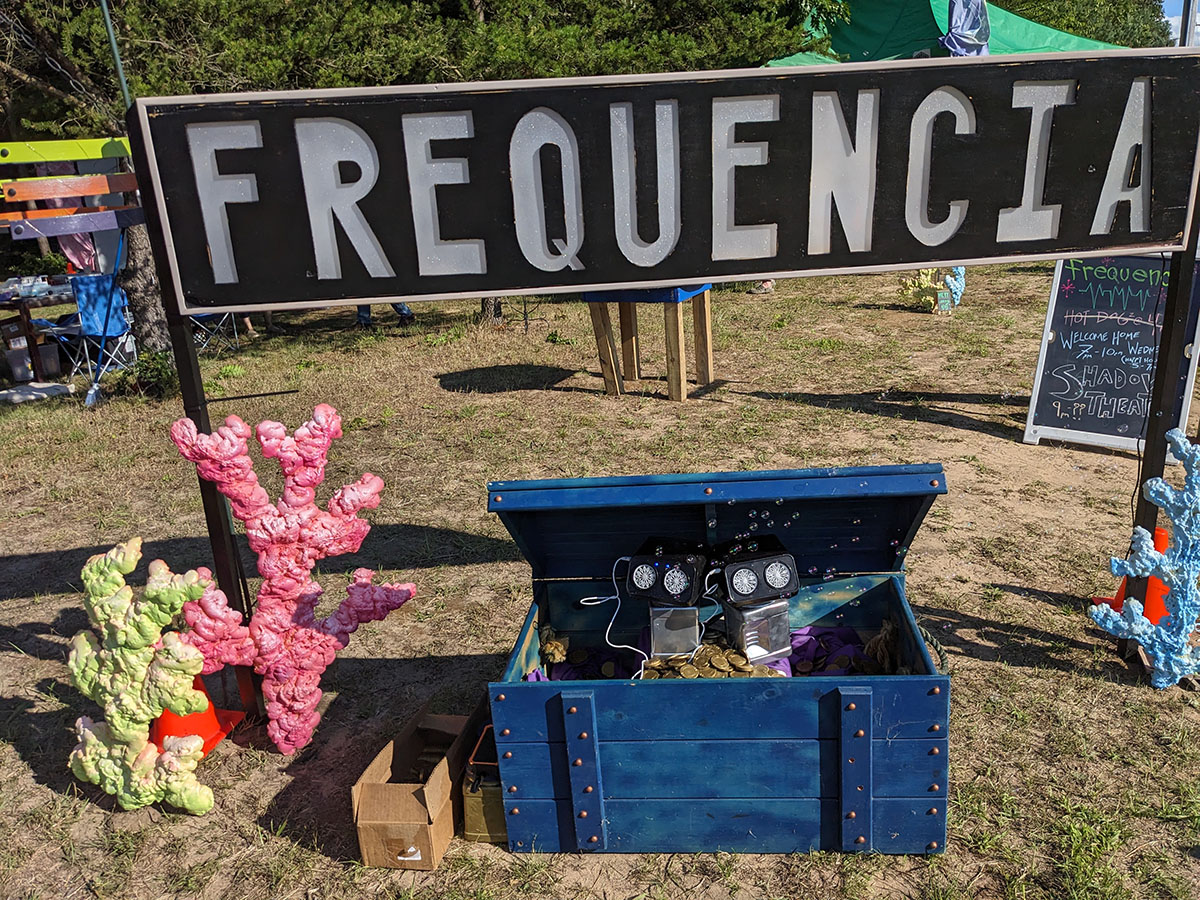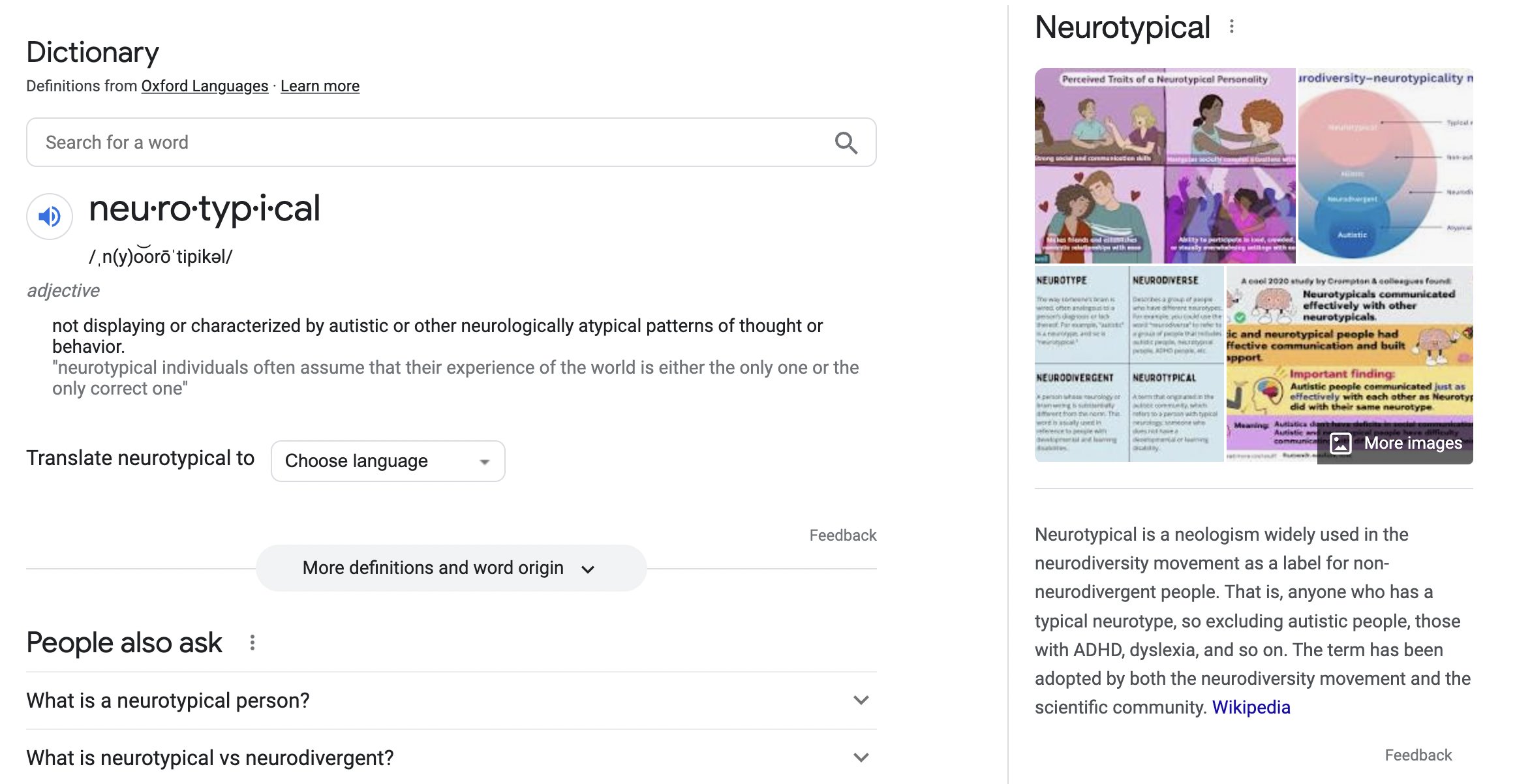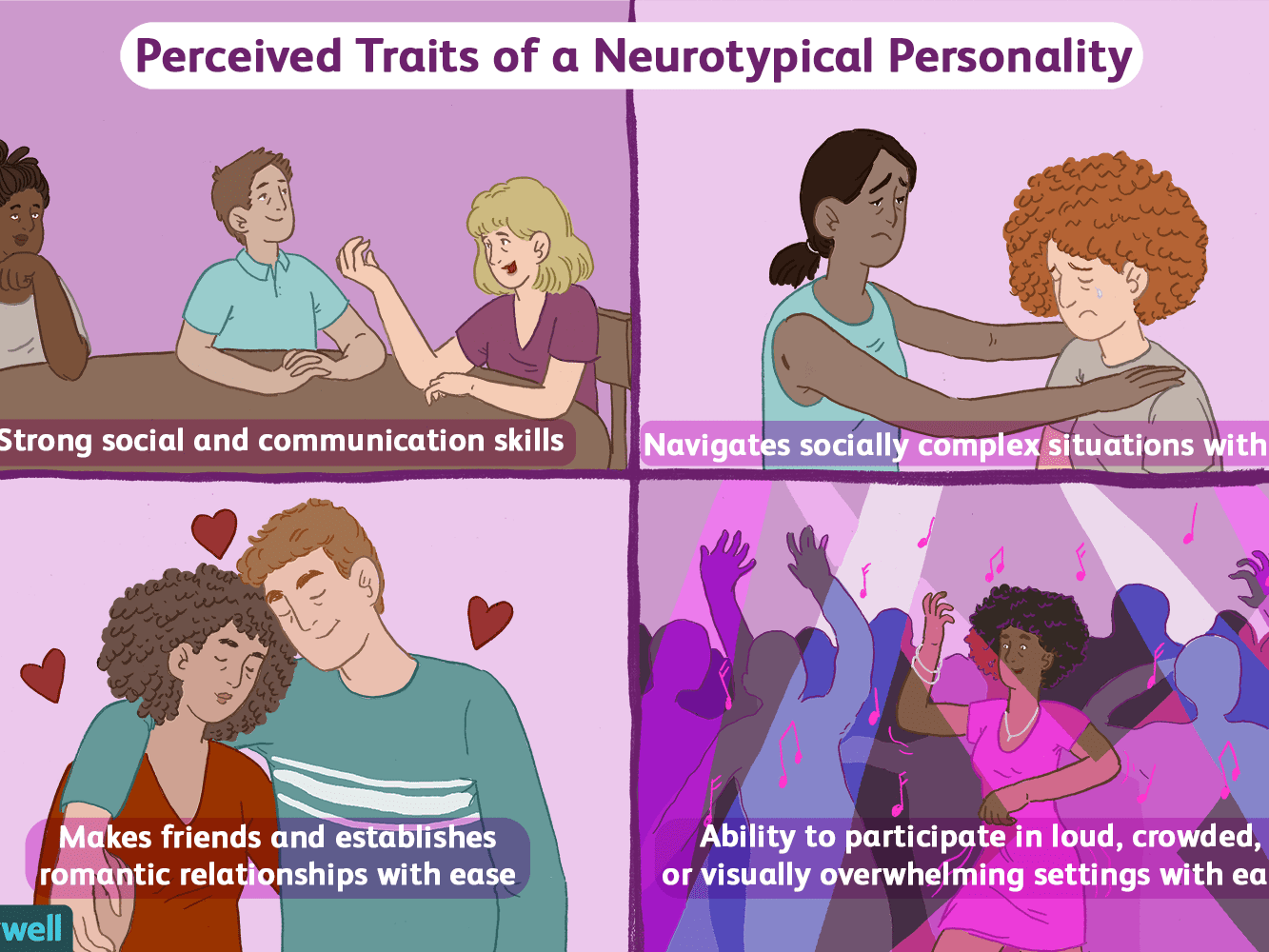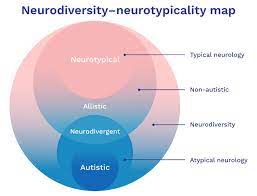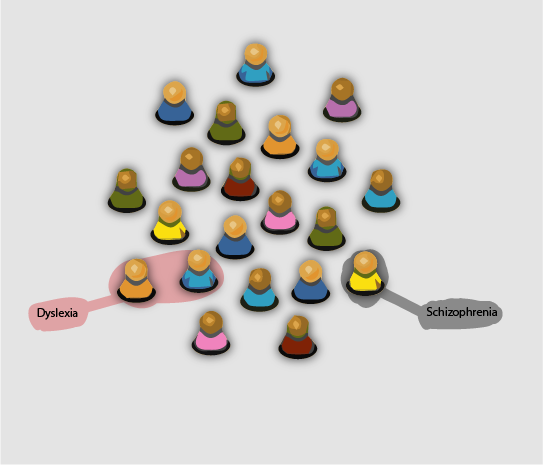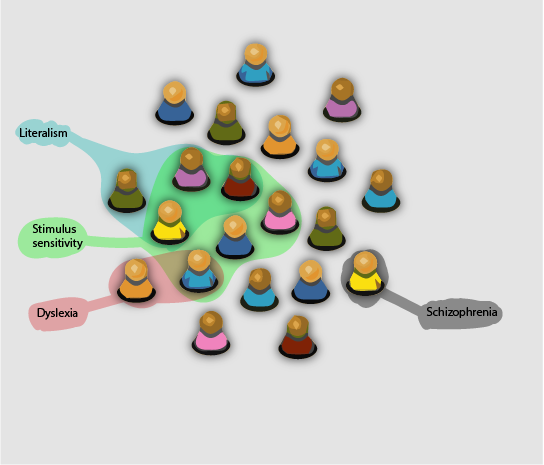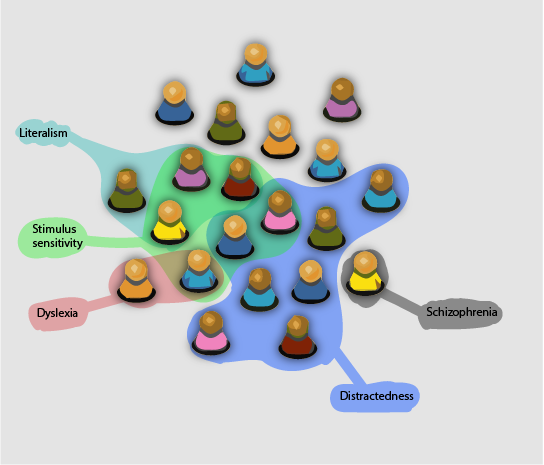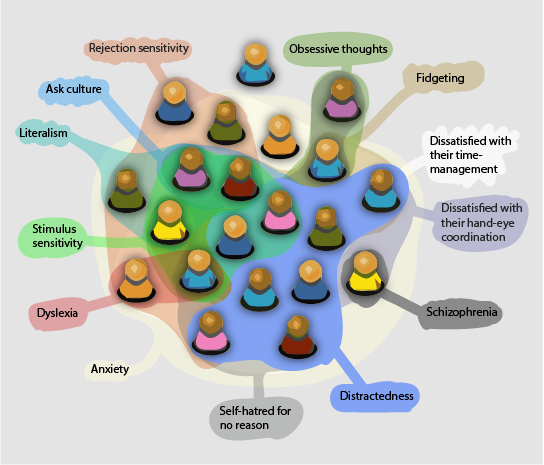It includes recommendations for further reading or listening, my reflections on the themes of the novel, the ability to change the world, finding patterns where none exist, propaganda, random acts of violence, and resisting despair.
It also includes a very personally vulnerable account of how the novel makes me feel about the historical development of this century so far, the position of my life within that, and the place of you and I and each other in the world.
Question timestamps:
1. The theme of your blog - 01:07
2. Softening opposition to the antagonists - 01:47
3. Planning in a serial format - 05:56
4. Justifying the unjustifiable - 11:09
5. Placebomancy and propaganda - 20:18
6. Worldbuilding premise - 26:44
7. Comedic style - 30:53
8. Psychological distance - 38:02
9. Did anyone ever make it to Wall Drug - 46:50
10. After the interview - 52:39
The UNSONG Audiobook is now complete. It has been tremendously fulfilling for me. This episode will include my recommendations for other books and media which UNSONG readers are likely to enjoy, and I'll provide links in the show notes. First, an interview with the author of UNSONG, Scott Alexander. We corresponded over email, so in order to distinguish our voices, you'll hear my questions in your left earphone,
and his responses in your right earphone,
separated by this sound effect. [wind]
I sent him nine questions. Here's the first one.
1. The theme of your blog - 01:07
If I had to try to summarize your viewpoint on the world from reading your blog, Slate Star Codex, over the years, I might summarize it as: "fixing big problems is complicated". Is that close to how you see it? Does this novel present your viewpoint on the world? To illustrate that even when we are tempted by promises of straightforward fixes and over-simplified solutions, it ends up complicated anyway.
He replied:
I wrote an answer to this but in retrospect my answer to question 4 answers this one better than my answer to this one did.
My second question was:
2. Softening opposition to the antagonists - 01:47
Was your goal to emotionally invest readers in opposing the antagonists, then softening that? Like, the resolution of the conflicts against Thamiel, the Other King, and Malia Ngo, is that they got everything they wanted, up until the moment Albion reset the universe, and, with it, their conflicts. So they won, and got away with it. The freeing of Hell, and the new world that results from Albion rebooting the universe, happen off-stage. All the conflicts on-stage end with "the readers don't get what they want." Then in the final paragraphs, the antagonists seemed to be presented sympathetically.
Do you see that literary device as a perspective-seeking technique, like an attempt to approach Kegan stage 5 meta-systematicity?
He responded,
The plot of Unsong begins as a pretty simple conflict under the protagonists' control, and then they gradually end up more and more out of their depth until they're stuck as pawns in the plans of entities they can barely begin to comprehend - all of which turn out okay in the end since this is fiction. There's something that appeals to me historically about this - the analogy that comes to mind are all of those police chiefs and politicians frantically passing tough-on-crime bills and coming up with more and more desperate ways to enforce the law during the 90s, and then everything works out fine because the problem was actually leaded gasoline and once that was banned crime plummeted on its own. Or thousands of years of saints trying to support lepers and remove stigma against them, all ending in the invention of antibiotics that cure leprosy. But I also can't take it completely seriously - there are a lot of bad things in the world that won't end through deus ex machina or turn out to be fine all along. Many of the protagonists' actions turned out to be useless, but there were some that made important differences, and some enemies who really needed vanquishing.
This answer put me in mind of something from the science fiction author Ada Palmer, a historian at the University of Chicago, where she studies the history of progress, atheism, and free thought. I'm currently reading her nonfiction history book "Reading Lucretius In The Renaissance", and the point she drives home in that book is, here we are in a time where I can be an atheist and I'm pretty much OK. I'm not being persecuted for it, but no one historically responsible for that actually intended it as the outcome of their life's work. Lucretius planted a lot of the seeds that led to the concept of natural science, and he had no idea he was doing so, and no interest in it. Most of those copying and spreading his manuscript did so only because they were trying to learn and teach Latin by doing so!
It's political science fiction depicting the collapse of a post-scarcity Utopia. She said the central question of Terra Ignota is, if you're working for a better future, and these saints supporting lepers, these police chiefs and politicians in the nineties are working for a better future, but you get this future, is it still worth it? You get this 25th-century unintended set of social customs and institutions, which 21st-century social justice sensibilities find simultaneously victorious and off-putting, freeing but also limiting... this is the future depicted in the novel, that results from your life's work... is it still worth it?
On to question 3.
3. Planning in a serial format - 05:56
Writing in serial format, how much did you write by the seat of your pants, or carefully outline everything in advance? What parts of the ending were always in the plan from the beginning? You wrote a blog post about editing UNSONG, in which you said that you're considering removing Chapter 1, because it leads readers to expect the novel to be about open-source Unitarian Universalists versus theonomic tech giants that abuse intellectual property law. That conflict was mostly dropped after Book 1.
When writing chapter one, did you have some sense that you were appealing to your typical blog readers? I'm thinking of two ways. First off, chapter one invested me in the novel because my life revolves around intellectual property conflicts and resisting Big Tech, as you know from Penguicon. I even live in a house like Ithaca. Secondly, I'm an atheist who graduated from Bible college, so I know what it's like to scrape the bottom of the hermeneutical barrel to make it look like one's own opinions are scriptural. The book made it clear early on that we were going to have some laughs at the expense of wrongheaded thinking like numerology and theodicy. I was there for it! Aaron Smith-Teller has enough raw cognitive horsepower in the service of self-deluding rationalization, that he can get super creative with even the thinnest correspondences. To put it bluntly, all of this appealed to my resentments and grievances. From your surveys of Slate Star Codex readership, does all this seem typical of them?
Midway through the novel, after the intellectual property plot conflict was dropped, it started to become clear you were going to treat theodicy with non-ironic earnestness. I started to take the novel less personally, and appreciate it more like Uriel appreciates a balanced tower of hyper-dimensional shapes. Did you start one way, and end another way, in order to induce that shift in your readers? Did you write the first few chapters before you clarified to yourself which conflicts you wanted to be central? Or did you have a goal from the beginning of the writing process to make this transition?
His response to question three was:
Everything about writing this was a mess, a congealing of several unrelated plotlines that I'd started thinking about and then dropped over the space of decades. I started with the end - the very first Unsong-like idea I had was "what if somebody committed terrible crimes as a plot to get into Hell so he could destroy it?" The book I originally sketched out around that was nothing like Unsong - it took place on a planet that wasn't quite Earth, or might have been a postapocalyptic Earth, or something - but it never really clicked. The second idea I had was "what if wizards had IP battles over their spells?" - this was back years ago when Napster vs. the RIAA was central to Internet culture wars. I actually wrote a first draft along these lines that barely involved kabbalah at all, except as a half-joking name for the spells since they were all just spoken words. Then I read some LiveJournal post about the Talmud - I wish I could find it, the only part I remember was that it was in a dialogue format and involved Rabbi Eliezer having near-superpowers by knowing hundreds of laws about cucumbers or something - that really drove home how the Talmud had a lot of elements we would consider fantastic and magical, but in a totally different way to the Tolkien-derived ideas of modern fantasy - and I really wanted to write a fantasy book capturing that. I don't think Unsong ever did that, but it got me thinking along those lines and reading enough Jewish folklore to get it where it actually ended up. I only started posting episodes once I had a second draft done, and it still changed a lot week by week as I posted it. Parts that people liked (Uriel and Sohu, which was just one chapter in earlier drafts!) got more airtime, and parts that people didn't like shriveled away. But I couldn't figure out how to rewrite from square one, so it ended up being a lot of things jammed together.
Time for another book recommendation as a follow up to question 3. If you were fascinated by the early chapters of
UNSONG, I recommend
The Laundry Files novel series by Charles Stross, which is a favorite of mine. A spy agency performs espionage with computational demonology and recruits an office cubicle drone from their I.T. department. I think
UNSONG readers would enjoy it.
Start reading The Laundry Files with The Atrocity Archive. Link in the show notes.
So here's question 4.
4. Justifying the unjustifiable - 11:09
It's risky to try to invent justifications for the unjustifiable, to excuse the inexcusable. A strong argument could be made that some atrocities were necessary and correct, at certain points in history, such as Sherman's march to the sea, or dropping a nuclear bomb on Japan. But inventing reasons why a universe with so much evil is compatible with a good and powerful God feels, to me, equivalent to QAnon justifying committing massacres in nightclubs and mosques by inventing a story that our public servants run a child sex ring to extract adrenachrome from infants. Do you worry at all, that if UNSONG finds a readership outside your blog readership, it might encourage some of its readers into a theodicy pattern of thought, in which they invent reasons to let authority figures off the hook for their misconduct?
His answer to 4 is the one that he referred to in his answer to question 1.
As far as I know our public servants aren't involved in a child sex ring, other than the Epstein one we already know about. But they do frequently start wars that kill tens of thousands of people. They do run an economic system that leaves hundreds of thousands destitute on the streets. They do lock up millions of people in horrifying prisons and kill some number of them in execution chambers. At that point, who cares whether they're running a child sex ring on the side? If there was a certain amount of evil by public servants that would justify committing a massacre in a nightclub, we've already barreled past it at a hundred miles an hour.
I think this is the basic theme of Unsong - the world contains so much evil that it's impossible to tolerate. So do you shoot up a nightclub? Dylan Alvarez would. If you wouldn't, why not? And what do you do next?
For me, the answer is something like that the systems that run our world - democracy, capitalism, the world order - are complicated compromises that try to hold things together for the greater good. They're UNSONG. They're Malia Ngo, keeping things working while we build the armamentarium we need to fight demons beyond our comprehension. They're half-demon and half-saint and that is the only combination that makes them strong enough that they might possibly work. Do you try to kill Malia Ngo? Again, Dylan Alvarez would. Is he right?
Everyone is engaged to some degree in the sordid project of justifying evil for the greater good. How far do we take this project? Probably not infinitely far? But probably we also don't abandon it completely? They enslave their children's children who make compromise with sin. But also, the Comet King said that the only compromise with sin was doing anything that didn't - when all is said and done - ultimately maximize the total amount of goodness in the universe. I don't have any more insights to give about this question here, but luckily I already wrote a book about it.
That's an interesting question: you're not going to lash out destructively, so what do you do next? Well, here's not one book recommendation, but two, based on whether you are looking for emotional catharsis at the injustice of it all, or looking to roll up your sleeves and get to work fixing it.
According to Malia Ngo and Simeon Azore, if humanity had free access to all the names of God, supposedly fewer names would have been discovered. We're told, but not shown, so we'll have to take their word for it. If you were shown what would have happened, that could be considered a spin off novel to
UNSONG. If that gets you curious, I recommend
Walkaway, by Cory Doctorow. Link in the show notes.
Right now, in the real world, we have artificial scarcity. Unnecessary artificial scarcity, which rather than supporting the economy, holds back the economic potential of billions. We could eradicate all poverty just by deciding to. Walkaway begins in a very near future extrapolation where we just didn't decide to, to the point where a few people own everything and own everyone. It depicts in great detail how artificial scarcity collapses in a transition to a post-scarcity Utopia from the present day, through unbearable sacrifice, hard work, intelligence, imagination, design, and pro-sociality. The most interesting and complex capacities of human beings. It's relatively easy for a science fiction author to depict a Utopia that already arrived. It's far more challenging and rare, to chart a path from here. Walkaway is an incredibly ambitious book. Cory Doctorow's work in legal and economic activism puts him in a great position to really get into the weeds with it. He gave me a crate of the hardcover at Penguicon and I pushed it into the hands of every group organizer I could find-- our science fiction conventions, my hacker space, co-housings, you name it. It changed my life. And by the way, Wil Wheaton's audiobook reading of Walkaway is top-notch.
On the other hand, maybe what you need right now is not to strap in and get to work, but to take a while to give yourself some compassion. A bucket of ice cream, a good ugly cry, maybe a nap, but -- and I hasten to stress this -- definitely not pointlessly murdering a crowd of random people. If you find yourself sinking into a nihilistic rage, and if what you are looking for is catharsis for your feelings, you might appreciate the Canadian science fiction author Peter Watts, a marine-mammal biologist when he's not writing science fiction. I dare say he is inconsolably angry at the injustice of the human species on every page. I recommend you start with his
2007 novel Blindsight, about a spacecraft captained by a vampire. Well, a hard-science-fiction equivalent of a vampire-- it's hard science fiction. Every character in the novel is, in various ways, incapable of sociality and humanizing sentiment. The upshot of the novel is that conscious self-awareness is rubbish. I really can't do it justice here. It's that imaginative.
Peter Watts is also known for sassing American border security in 2009, for which the border guards punched him in the face, pepper-sprayed him, threw him in jail for the night, and made him walk back across the bridge to Canada without his coat in the freezing wind, and then a court banned him from the United States. For sass. His blog posts were exactly as acidic as his readers expected.
The border guards who did that to Peter Watts are acting just like the power-mad bureaucratic authoritarian villains from a Cory Doctorow novel, but one of these authors writes novels about meticulously detailed ways to circumvent control technologies, that work if you apply them in the real world. The other one writes novels about the human species being bullshit compared to marine mammals. Both of them are a lot of fun. Neither of them is actually wrong about the injustice, or wrong about their feelings. And neither of them pulls any punches to reassure you of anything. Except, maybe, on the question of whether our ancestors crawling out of the ocean was the right thing to do. For me, that's just a settled issue. I don't actually care why the world was created and humanity exists, it was and we do, it doesn't help us move forward, and I'm over it. Moving on.
And speaking of moving on, on to question 5.
5. Placebomancy and propaganda - 20:18
The way placebomancy works is that the universe can be persuaded to go along with a compelling narrative. This seems to offer a lot of explanations for ways the
UNSONG universe differs from ours. Here's an example. In the book, the devil's army of demons conquers the nations of Russia and Canada, and changes their national policies and physical and economic conditions, such as giving them all lead poisoning. The purpose was to degrade their trust in each other, motivate them to use violence, and damn their souls to hell. I am put in mind of the 1954 science fiction short story
Cold Equations by Tom Godwin. It was intended to illustrate an incident in which it was justified to kill an innocent person. But
Cory Doctorow pointed out in an article in Locus (again, link in the show notes) that it does not establish that. At all.
It's contrived. The circumstances of Cold Equations were unrealistically intricate in the number of systems that failed simultaneously, and the number of institutions that were criminally negligent, just like in Russia and Canada, where Thamiel artificially screws with the game-theoretical incentive landscape. The author of Cold Equations, Tom Godwin, cherry-picked improbable circumstances from his imagination into a strained rationalization for killing, set up his world that way, played a slight-of-hand distraction trick to deceive his readers, and then claimed it had ramifications for real-life moral reasoning.
In UNSONG, placebomancy appears to make the universe itself susceptible to propaganda, and therefore the metaphysics of the UNSONG universe brings narratively-compelling Cold Equations-style situations into existence. On the TV show 24, Keifer Sutherland's vigilante torture is justified by imminent terror threats. Similarly, theonomic corporations and UNSONG are justified in order to resist an invasion of demons and the Other King's genocide; the Other King's genocide is justified because Hell exists; and Hell is justified by God's explanation for theodicy. Did you set this up to illustrate what it's like to live in a universe with placebomantic metaphysics?
On the other hand, should we not even look at the novel at the level of diagetic explanations like that? Would you prefer the novel to be analyzed on an entirely metaphorical level?
Here is the author's response to question 5.
Is the chain of rationalizations justifying property rights, or taxation, or any other concept that our entire social system relies on, really interestingly more morally complex than the chain that justifies UNSONG? At least it's more fun when it bottoms out in the literal Devil instead of something boring like incentive landscapes or whatever.
Ha ha, yes, it is funnier!
So this response contained another question, which it seems like it's worth saying something about. Are taxes, property rights, and all the concepts our society relies on, more morally complex than monopoly-seeking, genocide, and torture?
Yes.
Interestingly more complex? Yeah, my interest is piqued. Our cooperative social systems are designed, built, and degrade, and then are maintained and improved. They provide enough fascinating complexity for a lifetime. Monopoly-seeking, genocide, and torture don't sustain our systems; nothing depends on them; they are parasitic, and lead to their own downfall. They require only getting lucky, turning off the most complex and interesting capacities in one's self, and the most sophisticated capacities in one's groups, and then coasting.
Take the afore-mentioned novel Too Like The Lightning from the Terra Ignota series by Ada Palmer. Many of you at this point find your interest piqued in being shown, not told, exactly how Simeon Azore and Malia Ngo were responsible for holding together humanity's armamentarium against Thamiel's forces. That could make an interesting spin-off novel. Ada Palmer's novels, drawing from her knowledge of political machinations throughout history, show you how the sausage is made, and how ugly the injustice gets. Then it shows you how it gets less unjust, but also a little more unjust in other ways, and it shows you how the less-unjust sausage gets made too. The tension in the collapse of the 25th-century post-scarcity Utopia has tragedy and tension that you can cut with a knife, but I never feel like I'm just watching the water slowly rise over my head, in a state of hopeless passivity, because of the sheer scope of the social and political innovations in that world. The interestingly-complex design of it all.
By the way, she runs a multi-day Live Action Role Play or LARP for her history students at the University of Chicago, in which they roleplay officials in the Renaissance period who are meeting to elect a Pope. It goes incredibly differently every time, and illustrates how little of a difference our choices make in history, and how much of a difference our choices make. You and I, listeners, we are in over our heads. And yet, we have agency. The Terra Ignota series, 2016's Too Like The Lightning and its sequels, has become my favorite book for how thought-provoking it is. I recommend the audiobook. It is fantastically-well narrated and produced.
Here's question 6.
6. Worldbuilding premise - 26:44
Did you have the idea for the novel by musing about its worldbuilding? Would you characterize its central worldbuilding premise as "anything which serves to delude one's self or manipulate the credulous is literally true in the novel's universe?" The influence of John Dee on Enochian is the clearest example, but even Wall Drug signs are a form of marketing.
Here's the answer to question six.
I think one of the central premises is pattern-matching. All the patterns are real. There are no false leads. Somebody once described conspiracy theorizing as coming from a natural aesthetic preference for big events to have big causes. JFK's death changed everything. For it to come from some lone loony with a rifle is *inelegant*. It's not narratively satisfying.
In the early 1600s, one of the most learned and impressive alchemists in history gazed into a stone and received the language of angels. Have you read the Enochian Calls? They are blood-chilling. They do not sound human. For all of that to just be one guy deluding himself with the help of a random con man is inelegant. I don't like it. In a world where the patterns all matched and everything was aesthetically correct, the Enochian calls would be real.
Likewise, if you've ever driven through the Midwest, you've seen the Wall Drug signs. You know the mounting sense of anticipation they create, the idea of getting closer and closer to this mysterious but important place, this center of the South Dakotan universe. Then you get there and it's just a strip mall. Inelegant! I demand Wall Drug be the asymptote of existence, the distant Eden that can be approached but never reached. Anything less would feel wasteful.
OK, that makes so much sense now. The website
Meaningness.com by David Chapman has a lot to say about nihilism, and its opposite extreme, eternalism. Nihilism is an extreme stance in which nothing means anything, while eternalism smears a singular meaning indiscriminately all over everything. This sounds a lot like religion, but it also emerges in romantic fixation, the fervor of Soviet Communism, and a lot of other things. Eternalism involves the idea that nothing is a coincidence.
My book recommendation this time is
Blankets, by Craig Thompson, a graphic novel autobiography about leaving behind Christian fundamentalism, and leaving behind his infatuation with his first girlfriend. In the novel, whenever the world is covered in blankets of snow, the titular blankets, it looks to the young Craig Thompson like the world is made of all one thing. A world of snow. Nothing is a coincidence because the whole world and everything in it is about Jesus. Or nothing is a coincidence because the whole world and everything that happens in it is about his girlfriend.
What David Chapman of Meaningness.com would probably say about Blankets is that it's kind of typical of someone in the grip of eternalism to wildly oscillate back and forth between eternalism and nihilism and into a new eternalism, like the young Craig Thompson does. Over time, Craig gets to the point where some occurrences are full of meaningfulness, and others are just a coincidence, and he starts to be able to tell the difference. Since it's a graphic novel, there is no audio adaptation.
Speaking of nihilism! Question 7.
7. Comedic style - 30:53
The comedic style of UNSONG seems to differ from that of The Hitchhiker's Guide To The Galaxy by Douglas Adams, or Rick And Morty by Dan Harmon, in that it seems like you wanted to invest the reader in conflicts and emotional throughlines. Is that right? Did either of their comedic styles influence yours?
Hitchhiker's seems to set up very few conflicts for the reader to invest in, as if there is no question to answer. "42." Rick And Morty invests the viewer in order to deliberately undermine their investment, over and over and over. UNSONG, Hitchhiker's, and Rick And Morty seem to draw their comedic style from the humorous defeat of the audience's expectations to have emotional investment in their conflicts, or their expectation that there would be a payoff.
But another word for "emotional investment in conflict" is "morality". By humorously playing with emotional investment, the comedic style of all three works seems amoral, morally nonsensical, or actively "anti-sensical". Unlike Adams and Harmon, do you remain hopeful that perhaps after all the
order and chaos, and balance and excess, and meta-balance and excessive meta-balance, readers will stabilize at an emotional and moral equilibrium in how they relate to the novel?
Here's how the author answered question 7.
I plead innocent of your charge. I tried as hard as I could to make your emotional investment pay dividends. Arthur Dent sought the meaning of the universe and got 42. Ana looked for the meaning of the universe and got...what I hope is a pretty good stab at it, at least within the bounds set by the book. Aaron learned the Explicit Name. Dylan and Erika got to go out in a blaze of glory. Malia overcame her heritage and proved that, whether or not she could be good, she could at least do good. Uriel made a friend and figured out how to tell knock-knock jokes. Sarah earned Aaron's love and then united with him forever. The Cometspawn fulfilled their prophecy. Robin and the Comet King did what they set out to do. Sohu didn't curse her father's name, even with her last breath. And everyone had a part to play in the end. I have no idea how Albion will remake the world. But all of that will go into it. Everything they learned and became over the course of the book. Sure, they all died, which is *kind of* like not having emotional payoff. But it's the apocalypse! Everybody dies! That's just how apocalypses are!
A very informative response. I'm just saying play to the strengths inherent in the worldbuilding, which is dark comedy.
I found it compelling when Uriel, in his backstory, defeated Thamiel and Gabriel. That was gripping. He just can't tell knock-knock jokes, and that's fine, I don't feel plot tension in wondering whether he will, because I don't see why he would need to. Then he suddenly can, which is
super easy, barely an inconvenience. That's funny! It's funny to care about that!
Most of the time, I don't sympathize with most of the characters and I don't want them to succeed, which is exactly how it's supposed to work in balls-to-the-wall gallows humor. It's tragic that Sohu failed to curse her father's name. She should have cursed him. Play it for laughs. I want Sarah and Aaron as far apart as possible, but Aaron made his bed and he's gonna sleep in it, and if Sarah's in his head, she can't get the distance she needs to grow out of it. Play it for laughs. In the case of Malia Ngo, the idea that good or evil is something you are caused to be by who your parents were, is again pattern-matching. It's not how morality works. Good is always something you do, never something you are. But Malia thinks she has a nature to be overcome, and that's tragically funny. I'd like to see it leaned-into more!
The pattern-matching worldbuilding premise is
eternalism, the polyanna practice of smearing one eternal ordering principle all over everything, like Adam Kadmon. That stance is always an emotional see-saw. When an eternal ordering principle like God is shown to be unworkable and starts wobbling towards nihilism, theodicy is one of the self-delusion practices employed to strengthen the polyanna stance. It's healthier to accept that there is no God. Plenty enough things are meaningful, without everything having to be part of a divine plan. But in the
UNSONG universe, there is no such escape. It illustrates that a world where nothing is ever a coincidence can be nothing but this see-saw between nihilism about high stakes which are doomed to fail, and heartwarming wholesome polyanna about low-stakes that are within reach. One of the reasons it's funny is this contrast.
Stakes around systems, such as governments, policy regimes, and celestial machinery, are consequential. Trivial stakes are, as the Comet King put it, tweeting I'm-better-than-you and how-dare-you-say-that, infatuations or self-image or going out in a blaze of glory. UNSONG presents an upside-down world in which, that which is consequential is futile and that which is trivial succeeds, which is hilarious.
In the real world, we are not inevitably doomed to futility at either level of stakes. They work out sometimes and fail sometimes. How often? Often enough. How much is "enough"? That depends on whether you're suffering from depression.
So, what is an example of a comedy style that's not fatalistic? The Good Place. And that's what Question 8 is about.
8. Psychological distance - 38:02
UNSONG was just as funny as I expected. But it was funny without being light. The sitcom The Good Place also deals with the afterlife. The only torture that show depicts is psychological torture for comedic effect. Physical tortures are occasionally described, but not shown. If the show had taken seriously the sufferings of The Bad Place, or lingered on it, its optimistic comedic style wouldn't have worked. The audience was allowed plenty of psychological distance, so that the show can center on ethics, not worldbuilding. UNSONG maximized our discomfort about the conjunction of ethical philosophy and worldbuilding, making it as hard as possible to get psychological distance. Is that because you are writing to an audience that probably expects the genre of rationalist fiction, where the readers care a lot about detailed and explicit rules-based systems, and their implications when carried to logical extremes?
Here's the author's answer to question 8.
Again, I refer you to Interlude Yud. Ana's on one of her rants about theodicy, and finally Aaron just says “The Universe sucks. Deal with it.” Then Ana forces him to watch the Broadcast, a TV documentary about the tortures of Hell, as a way of viscerally cramming into his head that you cannot possibly deal with it, that if your answer to the problem of evil is "well, there's a little evil, but whatever", your answer is wrong. There is more evil than you can bear.
Everybody has to square this circle, where the world is full of evil but we don't go full Dylan Alvarez anyway. A lot of people square the circle by minimizing the evil of the world. I wanted this book to be about this hard problem and how it is hard, so I tried to decrease the psychological distance as much as possible in order to prevent people from doing that. The tortures of Hell (hopefully) aren't real, but most of the other stuff isn't that different to things that happen every day. Even some of the hell stuff was loosely based on factory farming. All these characters' weird obsessions and decisions don't make sense outside showing you that circle and preventing you from squinting until it looks kind of square.
Since the author has posed this question so directly, fully up front instead of subtext, and this is the one episode in which I talk about my own impressions of the book, I would be dishonest if I pretended not to have my own way of resolving this. I've spent a few years reading this novel to you without comment, but I will simply make a full disclosure of my position. If you're not satisfied with what I'm about to say, that's fair. If it were easy to get right, it probably wouldn't have taken a whole novel to present us with this challenge.
Ada Palmer's next fiction project will also involve theodicy, but with a twist. It'll be about Vikings. Dr Palmer says in the warm and fruitful Mediterranean climate, they wondered why a world which was clearly made to nurture them had evil in it. But in the hostile Viking climate, the world was ice and fire, and they reasoned the gods must be evil. So their mythos tried to find an explanation for why it had good in it. It's about perspective. So which perspective are we seeing here?
Well, in the last chapter of UNSONG, the people said to Rabbi Meir, "you're the expert here, and I'm not, but..." The author is a psychiatrist, so he knows infinitely more than I do about catastrophizing, personalizing, and universalizing, but ... doesn't this, at least outwardly, resemble that? Or at least, that's what I as a layman thought those terms meant.
Look, I have not been a patient or staff in a mental ward, but my loved ones have, and I've supported them and spent time there to visit them, and they have described at length, in tears, how inpatient mental health care was a bureaucratic hellscape of counter-productive futility, and they are never, ever, going back. So if I spent all of my employed hours surrounded by that environment, it might develop into an emotional set-point which would incline me to think the entire world is typified by torture porn such as Interlude Yud. Finding more than zero torture in the world, such as factory farming, does not typify existence as torture porn.
In the real world, making a problem worse, as Dylan does, is in no way a coherent reaction to that which is intolerable. And obviously I know and the listenership knows that the author does not support mass murder, from reading the blog. Don't get me wrong, I don't think the current listener base is on the fence about mass murder and that I need to talk you down. But on the other hand, this podcast is going up on Spotify and iTunes, where a lot of depressed and aimless true believers, desperate to leave their nihilism, and longing for an eternal ordering principle, might enter the type of search terms they search for, and find this podcast, completely out of context. And they like it when going out in a blaze of glory is glorified.
But I want them to know it's the butt of a joke.
They are not known for picking up on context or subtext, so I'm making things more explicit than most listeners might think is necessary. By recording and publishing this podcast, I'm partially responsible for what they read into it. So I'd like an alternative perspective to be present.

The cover of Godel Escher Bach: the Eternal Golden Braid depicts a geometric object that casts a shadow of G, E, or B from different light sources. Like the planet earth viewed from the sunny mediterranean or the hostile north. Neither form of pattern-seeking has the full picture of the real planet. Squaring the circle is like that. It looks like a square from every perspective except one where it's a circle. Like a mental health facility, or a factory farm. And they're not wrong. That's moral nuance. The sheer depths of harm infliction we see illustrated in UNSONG, how it's everywhere, how motivated and non-accidental it is, is the opposite of nuance. Which is fine, because it's fiction.
Fiction is an interesting place for these feelings, because I think that when we catastrophize, and personalize, and universalize, the reason we do very little about ... sweeping hand gesture taking in The Universe ... is that the only course for personal heroism on that scale exists in fiction. You know suspension of belief? We don't just suspend belief about facts. We suspend belief in our real-life principles and ideas. We practice perspective-seeking. We try on other selves.
And in that spirit, in my final question, I'll return from discussing the real world to discussing a work of fiction as an entertainment product. And I will feel a lot of feelings. So here it is. Question 9.
9. Did anyone ever make it to Wall Drug - 46:50
The biggest lesson I learned from UNSONG was to not impose my own meanings on it. As the ending loomed, I was filled with a growing realization that the central plot tension was theodicy. Actually resolving it. I was filled with a growing anxiety, which was the opposite of Ana's. I didn't want her to get an answer. It was just too much for me to ask that a fiction novel contain the first and only answer that satisfies me in two millennia of work on the subject. I long for God to say to her, "Look, I'm a paperclip-maximizing algorithm, OK? I'm half Satan. My idea of "designing" a universe is to ham-fistedly jam in a preference-frustration-maximizer: Hell. I should have waited to talk to Job until he had burned in Hell along with everyone else, and asked him again if he still thought this seed was a good seed. I hope for your sake you stop looking for a reason to let me off the hook. But here-- at least you have arrived at Wall Drug."
Fixing big problems is hard, but going to a drug store is not. I expect, any chapter now, one of the characters will arrive at Wall Drug. But no, it's like a t-shirt reading "I IMMANENTIZED THE ESCHATON AND THERE WASN'T EVEN A WALL DRUG." I can accept that Simeon Azore says the profit motive was necessary, this is never shown, so I have to take his word for it, all the bad guys win, Sohu killed Thamiel on Pike's Peak but he regenerates, Jala and Malia Ngo died but there's an afterlife, they all get away with it, Earth completes its slow collapse, the Albion hive-mind puts the boardgame of the universe back in the box so it can be played again, God gets off the hook for bad boardgame design, Ana doesn't accept it and he immediately kills her, and then by merging in kabbalistic marriage, the characters get pie in the sky when they die.
That was the point where, on the first read-through, I imposed my meanings, and it got bleak. I emotionally invested in the stakes of the novel to resolve positively without first re-inventing the universe. I was inappropriately assigning tons of symbolic importance based on the emotional stakes of my real life. This was equivalent to Aaron imposing his own meanings on Ana. He is not wrong to be her dear friend, but the romantic framing rings false. He places her in a frame of a perfect romantic partner for him, but that frame would only apply to a romantic interest who wants it. Aaron erased Ana and painted over her with his own interpretation, just like he painted over American Pie. She didn't do that to their relationship. He did. This novel meant something other than what I originally wanted it to mean. If I fixate on my interpretation, I would miss out on the meaning the book is trying to have.
I can learn that lesson with grace. But it would be nice to have at least one small win. I can let myself care about something as earthly and mortal as South Dakota. Compared to intellectual property law, genocide, and the collapse of the cosmic machinery, a billboard seems like safe plot-stakes to emotionally invest in and ask for it to pay off. In my head-canon, the novel ends like this:
"My voice only wavering a little, I spoke the Explicit Name of God. I received a Sign. It read: WALL DRUG STORE ~ SINCE 1931 ~ GLAD YOU MADE IT. Thank you for reading Unsong."
After two-hundred and forty-four thousand, one hundred and forty words, thirty-two hours of audio, you have to tell me, please, at the end of everything... did somebody, anybody, ever make it to Wall Drug?
The author's answer to Question 9.
It is written (Lovecraft, Sonnet XIII):
"Dreams bring us close, but ancient lore repeats
That human tread has never soiled those streets."
10. After the interview - 52:39
So there you have it. All nine questions, and nine answers, interspersed with book recommendations. Of which, here are some more.
I love cleverness in novels. And
UNSONG is probably the cleverest I've ever read. God's answer to Ana Thurmond was incredibly imaginative. The last time a novel presented me with an explanation for the creation of the universe that was even
nearly this clever, was the science fiction novel
Distress, by Greg Egan, who is unsurpassed at providing a crunchy technological coating with a chewy philosophical center. I won't spoil it for anyone, but every chapter of Distress blew my mind in a completely different way. I think fans of
UNSONG would love it.
Three times now I've mentioned Dr Ada Palmer, who wrote the Terra Ignota series about the political collapse of a post-scarcity Utopia; but I left the best of it for last. It will interest UNSONG readers because-- this is not a spoiler because it's introduced in chapter one of Too Like The Lightning-- there's an inexplicable supernatural phenomenon in what is otherwise hard science fiction. Also, the characters are obsessed with reviving 18th-century theological concepts, and the plot tension eventually hinges on wondering why the creator of our universe made the universe so badly. The fourth and final book of Terra Ignota will be released in June 2021.
My last book recommendation is
UNSONG itself. If you're hearing this episode at the time of its recording, but you haven't read or listened to
UNSONG since it's publication, there are reasons to read it afresh. In the real world, I feel like the sky kind of cracked in the late twentieth century. If I had to place the moment the world changed, for me, it was the release of Netscape Navigator in 1996, because all the weirdos started to find each other through the internet. I don't know if you had the same experience of reading
UNSONG, but I loved parts like hacking the Vanishing Name through the arrangements of beanie babies, for its resemblance to hacker culture. Kabbalah was a way to pry loose power, and distribute it. Surely kabbalistic hackers will give the world innovations in political and social organization! I had bright dreams of innovative forms of social organization and moral meaning in the two-thousand-aughts, forming a combination of a science fiction convention and an open-source software conference. Forming our local hackerspace. But by the end of the two-thousand-teens, I couldn't escape noticing the complicity of weirdos finding each other on the internet. The events of this decade, both personally and globally, completely changed my view of hacker culture. At the beginning of this century, when I left fundamentalist Christianity, was it from a traditionalist eternalism to a futuristic techno-eternalism?
Did I speak the Vanishing Name, only to find myself accosted by a different set of hooligans than the ones previously accosting me? What strikes me though, is how much better the second environment was than the first, as if the second situation had a bunch of dragon beanie babies, skewering sacred cows and traditions, in the hopes of hitting on a situation with a set of tradeoffs that are genuinely new and unique. Change can get worse, yes, or stay stubbornly equivalent, but change can also improve.
I'm recording this days before the United States presidential election of the year 2020, in a pandemic.
UNSONG is a book about a relentless collapse. The world and its systems collapse, and they don't stop collapsing until the last sentence of the novel. I'll quote the film critic YouTuber Dan Olson from his video
"I Can't Stop Watching Contagion". Link in the show notes. He says:
"Rather than practicing intense emotional states before they happen, this instinct of exposing ourselves to what we're already experiencing, amplifying existing emotional states, it works as form of emotional inoculation. I am scared and anxious and uncertain, and so I will make myself more scared and more anxious and more uncertain, because it's still fiction. It's still safe. It still has an end. It is bounded. Things will get bad, things will then get worse, people will die, the world is unfair, it is unbalanced, it is unjust, and catastrophe will bring out both the best and worst of all of us. And then it will end. Is there looting, arson, and murder? Yeah, but it is ultimately out of the ordinary. People get paranoid, people get desperate, they riot under stress, but even when food supply lines break down, the world isn't summarily turned over to those with the bullets and the willingness to use them. There is no Mad Max dystopia, no Fallout post-apocalypse, because at the end of the day, humans are pro-social. The cooperative survive.
...
There is an escapism to a story about horrible things, because that story is complete. It is bounded. It provides a framework to horror that doesn't exist in the real present. Our future is uncertain, beset on all sides by devils, and we can come out better, or we can come out worse, or we can die, and none of us knows which it will be, and we're all screaming at those in power to make the moral choice, to choose better.
...
Disease does not have a narrative meaning. It does not have an eye for poetry, or twists, or closure. The only meaning is in how we respond. So I watch Contagion over and over and over again. Because I need to practice emotions, and I need to live in a bounded world, and I need to believe we can choose better."
End quote. If you don't mind me stretching a scientific metaphor, fiction is a like a thought experiment, and we need to publish negative experimental results. Terra Ignota and Walkaway are like thought experiments that present a hypothesis and show us those formulations bring mixed efficacy, but there is some efficacy. UNSONG shows us collapse. We need positive and negative experimental results.
But what do you think of the concepts we've talked about in this episode? Leave comments in the Patreon. How do you square the circle? What I would most like to know is, are you building civic strength in your local communities through organization work? Or what other approach to collapse do you take? Do you enjoy speculating about in-universe explanations for events in the novel, based on how you imagine systems like placebomancy would work? Or is that missing the point and you think it should be thought about on an entirely metaphorical level? What further reading and listening do you recommend? And what would you like to hear next?
The episodes of this podcast, not counting this one, have been an actual audiobook. You put the files in a folder, or if you're oldschool, burn them to CD, and leave out this one, and what you have is an audiobook. That's why there have been no intros, no outros, no announcements or commentary. It's not going to be a collection of podcast episodes. It's going to be a finished audiobook.
I'll go back and re-record a few episodes if my Patrons tell me they really need it. I'll fix up all the metadata. Then I'll offer that version as a single downloadable folder, and there it will rest.
However, frankly, I don't want to stop. So with the gracious permission of Scott Alexander, I'll be reading my favorite works of his short fiction in the upcoming episodes. Eventually, I'll run out and need to narrate something else, and it will probably be confusing if it stayed in the same podcast feed and the same Patreon, but we're set for episodes for this feed and this Patreon at least until early 2021. I'm in talks with various authors, some of whom already have publishers, so we'll need to work out audio rights, but when I can let you know, I will.
UNSONG matters to me a lot. What a trip it's been! As you can tell, I went on quite a journey. Glad I went on it with you. It has been a great pleasure to perform it for you. I would just like to say to each of you how much I appreciate your listenership. Until the next episode, have a great day.
Music is Living Voyage by Kevin McCloud of Incompetech.com. This podcast is under a Creative Commons Attribution-NonCommercial International 4.0 license.



